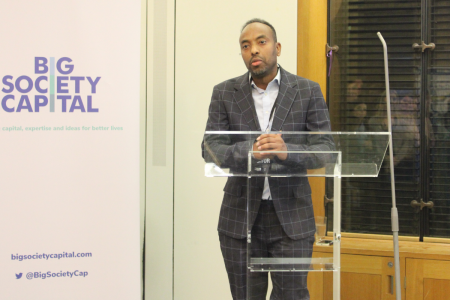Bristol: diverse but not integrated?
ACH / Himilo is a leading organisation in the integration of refugees and migrants and the approach outlined by the Council of Europe very much reflects the philosophy of our long-standing #rethinkingrefugee campaign
So, on 12th September, Intercultural Cities UK co-hosted a workshop with us on their Intercultural Cities (ICC) Programme. With the release of the Government’s Integrated Communities Strategy green paper earlier this year, we felt this was the perfect time to discuss this issue.
Isobel Platts-Dunn (UK Co-ordinator, Intercultural Cities UK) kicked off the workshop by delving into the background of the ICC. Having been founded and launched back in 2008, the programme now has a network of 126 member cities across the globe, with Swansea, Lewisham, Dublin and Limerick being the only UK cities signed up so far. It provides analytical and methodological tools, mentoring and learning, and strategy development to member cities.
Interculturalism is about seeing diversity as an asset, which fits well with our #rethinkingrefugee message of refugees as assets to business and communities. Three examples of best practice and methodological tools developed by the Council of Europe were showcased:
- The Anti-Rumour Strategy: https://www.coe.int/en/web/interculturalcities/anti-rumours
- Danish Centre for Arts and Interculture (DCAI)
- Rating Diversity in Business: https://www.coe.int/en/web/interculturalcities/rating-diversity-in-business
The workshop aimed to raise awareness of the benefits of inter-culturalism and bring Bristol into the fold of Intercultural cities, who are working together to tackle the need for diversity. During the workshop, Isobel also discussed the Cohesion and Integration Network, a network of individuals and statutory and non-statutory organisations which will encourage sharing of integration good practice on a national level.
Discussion then turned to Bristol. The over-riding sentiment was that whilst Bristol is diverse, it is not well integrated. Forward Maisokwadzo (Mayors Office, Bristol City Council / City of Sanctuary) put forward that “Bristol is more like a collection of small villages than a cohesive city,” and the ICC programme would act as a perfect tool in promoting integration and ultimately benefiting the city.
Cllr. Estella Tincknell talked about the city’s cultural strategy and went on to say that “Bristol is a fantastic city but it would be so much better if it was more inclusive.”
The workshop was rounded off with a roundtable discussion held to discuss the next steps in promoting inter-culturalism and how to get Bristol City Council as well as attending organisations involved. It was agreed that there was no easy fix. As Peter Gifford (Emmaus) said: “this will take a long time, but we can make a significant impact”. It was agreed that integration is a two-way process, or as Bridget Anderson (University of Bristol) put it: “integration is a process that goes on forever and involves us all”.
Abdi Mohamed, Company Secretary for ACH, summed up the discussion by stating that “the workshop was very informative”, highlighting that “in order to promote inter-culturalism we must acknowledge the social and cultural capital that migrants bring with them.”
Attendees concluded that Bristol would be a great addition to the programme, as a city that is diverse yet remains far from being integrated.
A paper will be written following this event, which we will then circulate. ACH / Himilo look forward to working with ICC to develop the concepts in Bristol and beyond.


